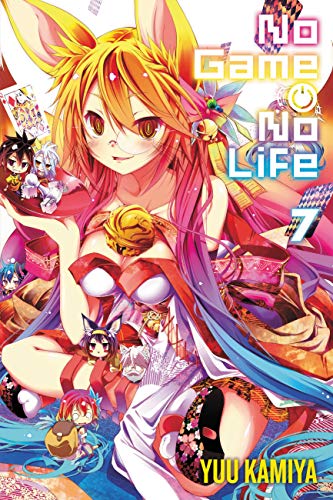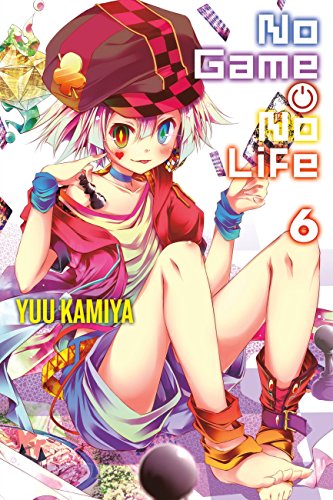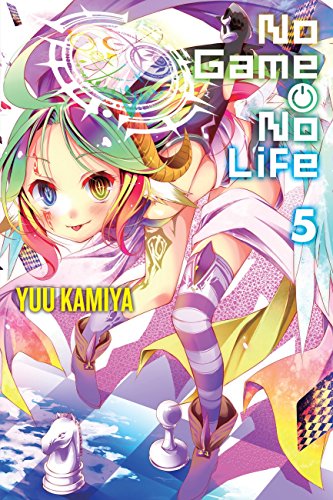By Yuu Kamiya. Released in Japan by Media Factory. Released in North America by Yen On. Translated by Daniel Komen.
Until I read the afterword of this volume, I was going to comment a lot on how this volume’s release was delayed, I believe, four times, to the point where I’ve forgotten almost everything that came before it. But the afterword indicates that it was delayed in Japan the exact same number of months, which made me suspicious and wonder if it was delayed here deliberately. Probably not, but given the nature of this series, you can never be too paranoid. Things are not helped on the “remember what happened previously” end by the fact that Volume 6 was a flashback, and also the best volume in the series, which Kamiya sheepishly agrees with – he had writer’s block trying to top it. Sadly, I don’t think he did here, as this 7th volume of NGNL is bout 3/4 irritating and wordy faffing about, and it only really picks up towards the end. That said, if the ending is doing what I think it’s doing, the 8th volume may be much better. It’s out in February. Theoretically.
We start off in media res, which is a difficult thing to pull off for a normal writer, and even more difficult when you’re this writer, who tends to expound about eight times more than is necessary. Sora, Shiro and the rest of the cast have apparently agreed to play a game against an Old Deus, with the shrine Maiden’s life at stake. This surprises them, as they have no memory of having agreed to the game. It’s a dice game with complicated rules, which Sora says is based on a game from Earth but which I was mostly blank on. Much of the volume is spent with our heroes (and Steph, who sadly is reduced to a cliche here) whining and being creepily fetishistic as the dice board is the same size as the world, which is to say it takes days to travel across spaces. And they also gain or lose age depending on the dice they have, meaning a lot of 2-year-old Steph here. And when you arrive at a space, you have to do a task that another player has assigned, which can be very difficult and dangerous.
I’ve talked a bit about the translation before. I don’t think it’s the worst thing ever, like some NGNL fans do, but it’s not doing the prose any favors either. Kamiya, as I said earlier, tends to expound a lot, and Sora and Shiro also speak in a jaded gamer sort of way. Add to that the fact that, unlike a lot of other translations, there’s very little “Sora said” or “Steph replied” added to the text to help the reader, and you get a book that feels like a slog much of the time. Thankfully, this changes towards the end, when we see a) Plum trying to become a full-time villain in the real world, and b) Jibril challenging [ ] to a game where SOMEONE is going to have to die. Actually, the nature of the game she’s challenging them to intrigues me quite a bit, and I’m interested in seeing how it’s handled.
Unfortunately, looking forward to Vol. 8 does not make Vol. 7 better. Kamiya was right in his afterword, this is a step down from the previous book. Still, if you enjoye NGNL, you’ll need to read it anyway.





